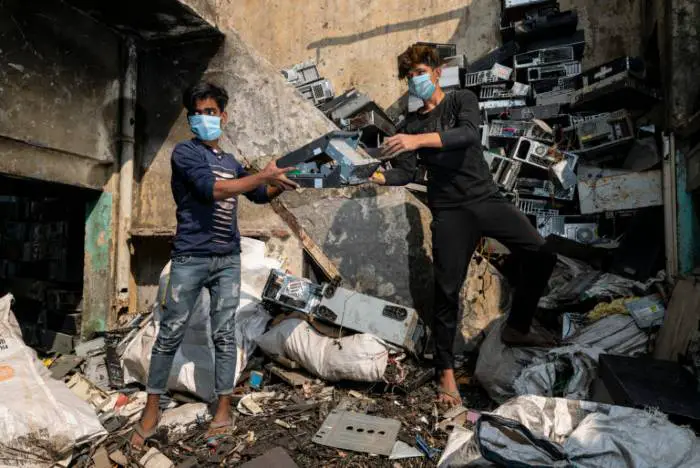With the increasing number of smartphones, laptops, and other consumer electronics products, India’s amount of e-waste is set to reach records in the coming decades. However, even before it becomes a problem that needs attention from the administration, Karo Sambhav — a grassroots-level Indian startup — has taken up its quest to recycle the country’s e-waste responsibly.

Karo Sambhav aims to change India’s e-waste economy
More importantly, Karo Sambhav aims to change the e-waste economy by stabilizing raw material collection, recycling, and finance channels. Even at this budding level, Karo Sambhav is rewriting history as well as it can. Pranshu Singhal, a master’s degree holder from Sweden’s International Institute for Industrial Environmental Economics and a mentee of Thomas Lindhqvist, is the brain behind Karo Sambhav.
Singhal believes that humans have this unique problem of generating more waste than we consume, but never look at how the waste products turn back to their elemental form. This thought, accompanied by his working experience in Nokia and the policy-level changes from the Indian government in 2012, urged Singhal to launch a startup that would channelize the e-waste economy. Since its inception, companies like Mi India have worked with Karo Sambhav to collect e-waste from its customers.
Roughly 7,200 tons of e-waste lands in India’s capital city from across the country and abroad every day. Most of it ends up in hundreds of small undocumented shops where bands of low-paid men and women dismantle junked desktops, laptops, monitors, smart phones, and all sorts of old gadgets by hand. Salvaged circuit boards and pulled out cables are sold on to crude recycling operations where workers with little or no protective gear use acid baths to extract valuable metals, said Microsoft.
In the following years, this startup has collected more than 12,000 metric tons of e-waste from various sources and sent them for recycling. The company has also expanded its presence across India by starting offices in 28 states and 3 union territories. Statistics say that Karo Sambhav has worked with more than 500 companies, 22,000 schools, 5000 informal sector aggregators, and 800 repair shops.
Because Karo Sambhav follows a structure, it has helped waste collectors across the country stabilize the source of money. In light of this change, many traditional waste collectors, who focused on iron scrap, changed to the world of e-waste, which, in addition to paying them better, discounted the needs for sorting/disintegration.
Given that several metric tons of e-waste are reaching the country’s landfills every year, Karo Sambhav has just started its journey. Both the corporate partners and grassroots-level waste collectors believe that this movement would have a long life ahead.
Leave a Reply